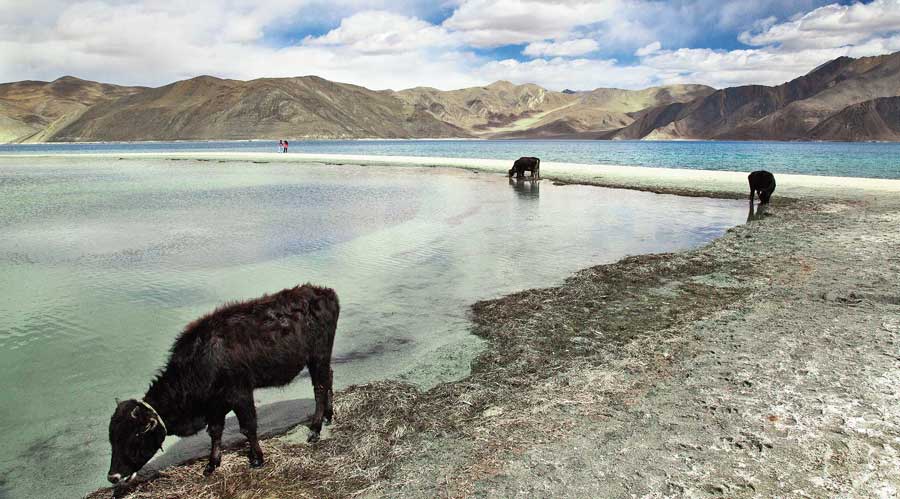The Centre’s efforts to mollify Ladakh appear to have boomeranged with the region’s Buddhist and Muslim leaderships joining hands to demand full statehood for the Union Territory and special status like that enjoyed by the erstwhile state of Jammu and Kashmir.
“It is a historic decision. For the first time and despite so many differences, the entire Ladakh leadership has come together and there was a consensus on four issues,” Asgar Karbalai, a leader of the Kargil Democratic Alliance, told reporters in Ladakh during a joint news conference with Leh’s apex body People’s Movement.
Topping the list is the demand for full statehood to Ladakh and exclusive rights over land and jobs for the Ladakhis similar to those guaranteed under the Sixth Schedule of the Constitution or Article 371.
Ladakh’s Buddhist population, a majority of whom live in Leh, had supported the abrogation of Article 370 on August 5, 2019, and the bifurcation of Jammu and Kashmir.
Ladakh’s Muslims, who live mostly in Kargil, had bitterly opposed the August 5 decision and were fighting for the restoration of the erstwhile state and Article 370.
With the BJP-led government giving no indication of giving in to their demands, it was a win-win situation for the Centre as the two communities were busy fighting each other.
However, the two communities have now not only forged a rare unity, but also sought more powers than those enjoyed by the erstwhile state.
“After lot of deliberations, there was a consensus on four points. Ladakhis faced lot of difficulties after the August 5, 2019, re-organisation when the state was divided into two Union Territories. People of Ladakh felt that issues confronting them can only be resolved by granting full-fledged statehood to Ladakh,” Karbalai said.
The two communities have now forged a rare unity. Their joint leadership rejected the domicile laws extended to Jammu and Kashmir, seeking exclusive rights over land and jobs.
Outsiders are free to buy land in Jammu and Kashmir while a section of them can also avail government jobs.
Additionally, the Ladakh leadership has sought two Lok Sabha and two Rajya Sabha seats for the region. Ladakh, which was home to just two per cent population of the erstwhile state, currently has one Lok Sabha and no Rajya Sabha seat. Jammu and Kashmir has five Lok Sabha and four Rajya Sabha seats.
The leaders demanded that 10,000-12,000 job vacancies should be filled within a month by only Ladakhi youths.
Former Ladakh MP Thupstan Chhewang, who heads the Leh alliance, said statehood for Ladakh was a long-term goal, adding that that they would agitate if the process to recruit Ladakhis was not started within a month.
Karbalai said all future negotiations with the Centre would revolve around these four issues.
The joint demand for statehood has come two months after the Kargil leadership held maiden talks with the Centre and sought full statehood for Ladakh. They seem to have succeeded in getting Leh on board.
Sources in the Kargil alliance said they had not given up on their demand for the reversal of the August 5 decisions.
“We have filed a petition in the Supreme Court against the August 5 decisions. The erstwhile state will become a reality only when those decisions are reversed,” a leader said.
In May, the Centre had reached out to the Jammu and Kashmir leadership where major parties, including the National Conference and People’s Democratic Party, told Prime Minister Narendra Modi to restore Articles 370 and 35A. There was no follow-up after that.










